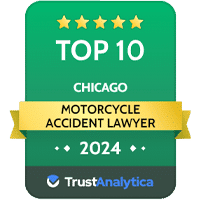
Can a Nursing Home Take Your House? How to Protect Your Home and Assets
The prospect of entering a nursing home can be a daunting experience, not only because of the emotional challenges but also the potential impact on one’s hard-earned assets. The question that lingers in the minds of many is, “can a nursing home take your house?” The answer is more complex than a simple yes or no. In this blog post, we will explore various strategies to protect your home and assets from nursing home claims, and how to navigate the intricate world of Medicaid rules and regulations.
Your search for help ends here. Let’s get started, for FREE.
Understanding the Risks: Can a Nursing Home Take Your House?
While a nursing home cannot directly seize your house, the associated risks pertain primarily to Medicaid. This government program offers health coverage to nursing home residents with limited income and assets. The costs of nursing home care are substantial, and many seniors turn to Medicaid to cover these nursing home expenses. However, there is a catch – the Medicaid Estate Recovery Program, which allows states to seek repayment for the costs of nursing home care from the estates of deceased Medicaid recipients, including their homes.
Medicaid and Nursing Home Care
Medicaid can cover nursing home care, but certain eligibility requirements and asset limits must be met for nursing home residents. To qualify for Medicaid coverage of nursing home care, an individual must have limited income and assets, which vary depending on the state, and demonstrate a medical need for long-term care in a nursing home. Keep in mind that a look-back period, typically up to five years, might apply. During this period, the government scrutinizes an individual’s financial transactions before their nursing home admission.
Transferring a house to another party, such as one’s children, may result in a Medicaid penalty period in most states. Selling one’s house for fair market value while on Medicaid may render them ineligible for Medicaid, and they may be required to apply the proceeds of the sale to their nursing home bills. Before transferring ownership of a house to another party, particularly when contemplating the expenses of a private room in a nursing home, obtaining legal advice is of utmost importance.
The Medicaid Estate Recovery Program
The Medicaid Estate Recovery Program permits states to recoup care costs from a deceased recipient’s assets, including their residence, by seeking repayment from the estate. The program’s claim against a deceased recipient’s estate is founded upon the assets the recipient held an interest in at the time of their passing. Repayment through the Medicaid Estate Recovery Program is permissible after the death of the recipient.
However, there are exceptions to the Medicaid Estate Recovery Program, such as individuals who are under 21 years of age or have a child of any age who is disabled or blind. This is an essential piece of information for families with adult children who are disabled, as it may provide some relief in the face of potential estate recovery claims.
Strategies for Protecting Your Home from Nursing Home Claims
Various strategies can help protect your home from nursing home claims, such as long-term care insurance, asset transfers, and Medicaid trusts. Each strategy has its benefits and drawbacks, and it is essential to weigh the pros and cons carefully to determine the best course of action for your specific situation. The guidance from a seasoned elder law attorney can prove invaluable, helping you navigate the intricate Medicaid rules and regulations to ensure your home and assets stay protected.
The subsequent sections will detail these strategies, highlighting their advantages, limitations, and potential implications. A comprehensive understanding of these options is fundamental for making well-founded decisions regarding the protection of your home and assets from nursing home claims.
Long-Term Care Insurance
Long-term care insurance is a form of insurance that covers expenses associated with care services, including:
- Nursing home stays
- Assisted living
- Adult day care
- Home health care
This type of insurance can help with the payment of nursing home and other care costs, potentially reducing or eliminating the need for Medicaid assistance.
However, the premiums for long-term care insurance may be excessive for older individuals, and some may hesitate to buy something they might not eventually need. There also exist Long-Term Care Partnership Programs which can help cover the costs of nursing home care. These programs provide a dollar amount paid out by a long-term care insurance policy for the policyholder that is exempt from Medicaid’s asset limit and Estate Recovery.
Loved One Injured or Neglected in A Nursing Home?
Asset Transfers and the Five-Year Lookback Period
Transferring assets before entering a nursing home can protect them from claims, but strict rules and a 5-year lookback period apply to avoid Medicaid disqualification. The 5-year lookback period is a period during which the government reviews five years of an individual’s financial transactions, such as purchases, sales, and transfers of assets, to decide Medicaid eligibility. If the government detects any transactions that contravene the Medicaid program’s regulations, such as a house transfer, they will presume the individual has the financial capacity to cover their own expenditures, and the applicant may be disqualified for Medicaid, forcing them to bear nursing home costs independently.
Avoiding common pitfalls when transferring assets within the five-year lookback period is important. Some common pitfalls to avoid include:
- Making yearly donations
- Transferring significant assets
- Allotting too many gifts
- Transferring assets for a value lower than the fair market value
Consulting an elder law attorney can help ensure adherence to Medicaid rules for a medicaid applicant and prevent potential penalties.
Establishing a Medicaid Asset Protection Trust
A Medicaid Asset Protection Trust (MAPT) is a trust that allows Medicaid recipients to transfer their residence and other assets to a trustee, who manages all assets within the trust. The trustee must be a person separate from the trustmaker or their spouse, such as an adult child or a different relative. Setting up a MAPT can shield your home and assets from Medicaid penalties. However, consulting with an attorney skilled in Medicaid planning is necessary to ensure the trust is properly established.
There are numerous risks associated with establishing a MAPT, such as:
- Relinquishing control of assets
- Irrevocability of the trust
- Potential repercussions on Medicaid eligibility during the look-back period
- Potential effects on the quality and availability of care
Consulting with an elder law attorney in your state can help ensure that your MAPT conforms to the specific regulations and requirements in your jurisdiction, providing the best possible protection for your home and assets.
Opting for In-Home Care Services
Choosing in-home care services instead of nursing homes can save money and potentially allow for out-of-pocket payment for nursing home care later. In-home care services provide a cost-effective alternative to nursing home care, as the average expenditure for in-home care services is approximately $4,680 per month, whereas nursing home care costs approximately $9,034 per month. In-home care packages typically include services such as:
- Personal care assistance
- Medication administration
- Meal preparation
- Light housekeeping
- Transportation to medical appointments
- Companionship
- Assistance with mobility
- Monitoring of health conditions
In addition to cost savings, opting for in-home care services offers several benefits:
- It may delay or prevent the need for nursing home care, reducing the financial burden on families.
- It allows for greater flexibility in asset protection planning.
- Financial assistance programs and insurance coverage options are available, including Medicaid, Medicare, VA benefits, and long-term care insurance.
Utilizing Life Insurance Policies
Life insurance policies can be an effective tool in protecting your home and assets from nursing home claims. By selling a life insurance policy or using it to pay for nursing home care, you can reduce your reliance on Medicaid and potentially protect your assets from recovery efforts. There are different types of life insurance policies that can be utilized for this purpose, such as permanent life insurance policies with long-term care riders or hybrid policies that combine life insurance with long-term care benefits.
It is important to consult with a financial advisor or insurance agent to determine the best life insurance policy options for your specific needs and circumstances. By carefully considering your life insurance options, you can potentially save money on nursing home care costs and protect your home and assets from claims.
Legal Assistance: The Role of Elder Law Attorneys
Elder law attorneys are fundamental in assisting individuals and families in shielding their homes and assets from nursing home claims. With their expertise in Medicaid rules and regulations, elder law attorneys can offer invaluable guidance and help in navigating the intricate realm of asset protection planning. Finding an attorney that aligns with your needs and adequately preparing for consultations is vital to secure the best possible outcome in your case.
In the following sections, we will discuss:
- The process of finding the right attorney
- Preparing for consultations
- The specific services and support that elder law attorneys can provide in protecting your home and assets from nursing home claims.
Finding the Right Attorney
Securing the right elder law attorney is pivotal for navigating the intricate Medicaid rules and regulations that oversee asset protection and nursing home claims. To select the ideal attorney for your needs, consider:
- Obtaining referrals from trusted friends and family
- Seeking recommendations from local agencies or organizations specializing in elder care
- Conducting research and reading reviews or testimonials from past clients
- Verifying the attorney’s expertise and experience in elder law and nursing home claim protection
- Ensuring the attorney is well-versed in Medicaid and long-term care planning.
Be mindful of potential red flags when hiring an elder law attorney from a law firm, such as:
- Lack of personal connection
- Rude or unfriendly staff
- Missing deadlines
- A cluttered and disorganized office
- Requesting payment before speaking with you
By carefully considering these factors and taking the time to find the right attorney, you can ensure the best possible outcome for your asset protection planning.
Preparing for Consultations
Before consulting with an elder law attorney, gathering relevant documents and information relating to your assets, income, and other crucial details is necessary. This practice aids the attorney in gaining a clear perspective of your financial status and in devising an effective strategy to protect your home and assets from nursing home claims. Also, preparing a list of questions and concerns before the consultation ensures all pertinent issues are discussed, making optimum use of your time with the attorney.
During the consultation, be prepared to discuss your specific needs, goals, and concerns with the attorney. Open communication and a strong rapport with your attorney are crucial to achieving the best possible outcome in your case. By preparing for consultations and actively engaging with your attorney, you can increase the likelihood of successfully protecting your home and assets from nursing home claims.
Special Considerations for Families and Disabled Children
When a parent needs nursing home care, special considerations for spouses and disabled children can influence the process of safeguarding the family’s home and assets. These considerations might include guardianship and conservatorship arrangements, addressing unmet respite care needs, and out-of-home placement if necessary. Also, Medicaid rules allow certain asset transfers to disabled children without penalty, aiding in the protection of the family’s assets without jeopardizing Medicaid eligibility.
In the following sections, we will discuss these special protections and considerations in greater detail, providing insight into the unique challenges that families with disabled children may face when navigating the world of nursing home claims and asset protection.
Spousal Protections
Spousal protections play an important role in shielding a family’s home and assets from Medicaid recovery efforts when one spouse requires nursing home care. The Community Spouse Resource Allowance (CSRA) is a key component of these protections, allowing the community spouse (the spouse who remains at home) to retain a certain amount of the couple’s assets while the other spouse is in a nursing home. In many states, the community spouse is permitted to maintain up to 50% of the couple’s assets, with a maximum limit of $137,400.
Understanding and taking advantage of spousal protections can help protect your home and assets from nursing home claims while ensuring that the needs of both spouses are adequately met. Consulting with an elder law attorney can provide valuable guidance in navigating these protections and maximizing their benefits.
Caring for Disabled Children
Caring for disabled children can present unique challenges for families facing nursing home claims and asset protection planning. Legal protections and strategies are available for families with disabled children, including the creation or modification of wills to include testamentary trusts and the establishment of a Medicaid Asset Protection Trust (MAPT) to protect assets for the benefit of the disabled child.
It is crucial to consult with a lawyer or financial advisor experienced in Medicaid planning to ensure that the specific needs of disabled children are met while protecting the family’s home and assets from nursing home claims. By taking advantage of these legal protections and planning strategies, families can ensure the well-being of their disabled children while safeguarding their financial future.
Loved One Injured or Neglected in A Nursing Home?
State-Specific Medicaid Rules and Regulations
Medicaid rules and regulations specific to each state can considerably influence asset protection strategies and eligibility requirements for nursing home care. Since each state operates its own Medicaid program within the federal guidelines framework, eligibility rules, types of covered services, and other Medicaid elements can differ from one state to another. Staying updated about your state’s specific rules and regulations is critical to effectively safeguard your home and assets from nursing home claims.
In the following sections, we will discuss common differences between states and the importance of staying informed about state-specific Medicaid rules and regulations. By understanding the unique requirements and limitations of your state’s Medicaid program, you can develop a tailored asset protection strategy that maximizes the protection of your home and assets.
Common State Differences
Common differences between states include asset limits, home equity limits, and recovery exemptions, all of which can have a significant impact on your asset protection planning. For example, Medicaid asset limits for a single applicant aged 65 or older can range from $2,000 to $10,000, depending on the state. Additionally, the maximum home equity limit for Medicaid eligibility can vary, such as the $595,000 limit in California. Recovery exemptions, which protect certain assets from Medicaid recovery efforts, also differ between states and can provide valuable protections for families and disabled children.
Understanding these common state differences and how they may affect your asset protection strategy is crucial to ensuring the best possible outcome for your family. Consult with an elder law attorney or Medicaid specialist in your state to gain a thorough understanding of the specific rules and regulations that apply to your situation.
Staying Informed
Keeping up to date with state-specific Medicaid rules and regulations is crucial for effective asset protection planning. Trusted sources for information about state-specific Medicaid rules include the State Resource Center and the Centers for Medicare & Medicaid Services (CMS). Keeping track of changes in Medicaid rules is important, as these changes can have a retroactive effect and may influence your current asset protection strategy.
To receive notifications regarding changes in Medicaid regulations in your state, consider signing up for email updates from the Centers for Medicare and Medicaid Services (CMS). This free email subscription service enables you to stay informed about CMS topics of interest to you, including changes in Medicaid rules and regulations.
By staying informed and proactive in your asset protection planning, you can ensure that your home and assets remain protected from nursing home claims when you, as a nursing home resident, move into a nursing home.
Frequently Asked Questions
How can I protect my money before going to a nursing home?
To protect your money from nursing home costs, consider setting up an irrevocable trust. This will transfer ownership of the cash to the Trust account and no longer be a part of your estate.
What is the Medicaid Estate Recovery Program?
The Medicaid Estate Recovery Program is a policy permitting states to reclaim care costs from a deceased recipient’s estate, such as their home, after their death.
How can long-term care insurance help protect my home from nursing home claims?
Long-term care insurance can help protect your home from nursing home claims by covering the expenses of care, thus reducing or eliminating the need for Medicaid assistance and potentially protecting your assets.












